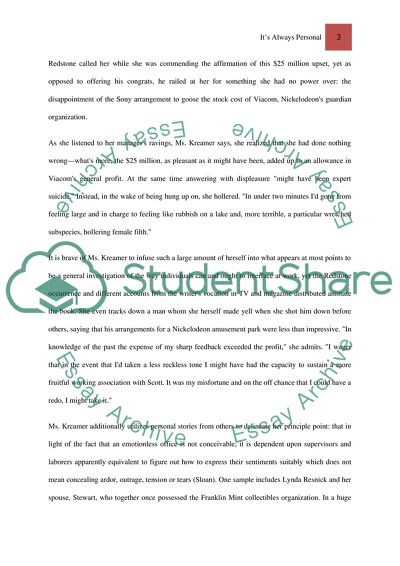Cite this document
(“Analysis of Its Always Personal by Anne Kreamer Book Report/Review”, n.d.)
Analysis of Its Always Personal by Anne Kreamer Book Report/Review. Retrieved from https://studentshare.org/literature/1821903-organizational-behavior-book-analysis
Analysis of Its Always Personal by Anne Kreamer Book Report/Review. Retrieved from https://studentshare.org/literature/1821903-organizational-behavior-book-analysis
(Analysis of Its Always Personal by Anne Kreamer Book Report/Review)
Analysis of Its Always Personal by Anne Kreamer Book Report/Review. https://studentshare.org/literature/1821903-organizational-behavior-book-analysis.
Analysis of Its Always Personal by Anne Kreamer Book Report/Review. https://studentshare.org/literature/1821903-organizational-behavior-book-analysis.
“Analysis of Its Always Personal by Anne Kreamer Book Report/Review”, n.d. https://studentshare.org/literature/1821903-organizational-behavior-book-analysis.


